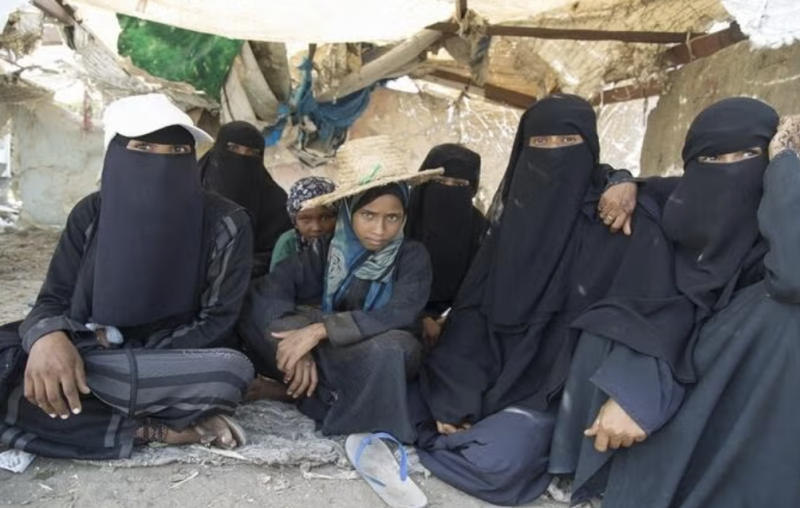U.S. transfers 11 Yemeni prisoners from Guantánamo to Oman


According to U.S. Defense Department records, all the Yemeni men are former al-Qaeda members, although many of them dispute the U.S. accounts of their backgrounds. Before arriving at Guantánamo between 2002 and 2004, several were held at secret overseas CIA prisons known as black sites, where torture was common.
Eventually, the U.S. government determined they no longer posed a significant enough threat to justify their continued imprisonment. However, several of the transfers are contingent upon "robust" security assurances from Oman, such as monitoring, travel restrictions and "integration support." Oman has said it will help the men find housing, jobs and other support systems aimed at letting them rebuild their lives, and in some cases will reunite them with family members.
Three other Guantánamo inmates -- a Libyan, a Somalian and a stateless Rohingya -- have been approved for transfer but remain imprisoned. The Libyan and Somalian cannot be returned to their homelands because those countries, like Yemen, are on Congress's no-transfer list due to security concerns, so the U.S. must find other countries in which to resettle them.
The Iraqi prisoner whose transfer is in the works has pleaded guilty to war crimes charges and the U.S. wants to send him to a prison in Iraq. However, the man recently filed a federal lawsuit seeking to stop his transfer because he says the Iraqi prison could subject him to abuse and inadequate medical care; he has a disabling spine condition.
The U.S. prison and military court at Guantánamo were set up to house and prosecute suspected foreign terrorists after the 9/11 attacks. The first prisoners arrived in January 2002 and about 780 detainees eventually passed through the facility, most of them never charged yet held for years. Guantánamo's supporters say it is a security necessity. Critics call it a moral stain on America.
In addition to quelling human rights complaints, transferring prisoners to other countries represents a huge financial savings to the U.S., which spends more than a half-billion dollars a year on Guantánamo's court and prison. Each inmate held there costs American taxpayers an estimated $15 million a year, compared to about $80,000 annually per inmate at a U.S. supermax facility.
Still, some members of Congress, both Republicans and Democrats, object to releasing Guantánamo prisoners on grounds that they could be a security risk, especially with the ongoing upheaval in the Middle East.
A State Department official told NPR that Monday's transfer "was the culmination of years of diplomatic effort and it did advance the Biden-Harris administration's goal of responsibly reducing the detainee population" at Guantánamo.
The 15 remaining prisoners are:
seven men facing charges, including alleged 9/11 mastermind Khalid Sheikh Mohammed, who has agreed to a plea deal
three uncharged men not approved for transfer
three uncharged men approved for transfer but waiting for the U.S. to find countries to take them
two men who have been convicted
The 11 Yemeni men transferred Monday are:
1. Khaled Ahmed Qassim
captured: December 2001
arrived at Guantánamo: May 2002
cleared for release: July 2022
2. Uthman Abdul al-Rahim Muhammed Uthman
captured: December 2001
arrived at Guantánamo: January 2002
cleared for release: May 2021
3. Moath Hamza Ahmed al-Alwi
captured: December 2001
arrived at Guantánamo: January 2002
cleared for release: December 2021
4. Zuhail Abdo Anam Said al-Sharabi
captured: February 2002
arrived at Guantánamo: May 2002
cleared for release: November 2021
5. Hani Saleh Rashid Abdullah
captured: September 2002
arrived at Guantánamo: October 2002
cleared for release: October 2020
6. Omar Mohammed Ali al-Rammah (alternative name: Zakaria Al-Baidany)
captured: April 2002
arrived at Guantánamo: May 2003
cleared for release: December 2021
7. Tawfiq Nasir Ahmed al-Bihani
captured: late 2001 or early 2002
arrived at Guantánamo: February 2003
cleared for release: 2010
8. Sanad Yislam al-Kazimi
captured: January 2003
arrived at Guantánamo: September 2004
cleared for release: October 2021
9. Hassan Mohammed Ali Bin Attash
captured: September 2002
arrived at Guantánamo: September 2004
cleared for release: April 2022
10. Abdu Ali al-Hajj Sharqawi
captured: February 2002
arrived at Guantánamo: September 2004
cleared for release: June 2021
11. Abdulsalam al-Hela (alternative name: Abd al-Salam al-Hilah)
captured: September 2002
arrived at Guantánamo: September 2004
cleared for release: June 2021

By/April Longley Alley* Among the broader regional repercussions of the Gaza ceasefire in October, one of the most signifi…

Al-Hodeidah – Local sources in Yemen’s Al-Hodeidah province have disclosed that Houthi militias are resorting to new methods of exploit…

By Jamal Al-Awadhi For years, Yemen has been treated by the international community as a marginal conflict an unfortunate…